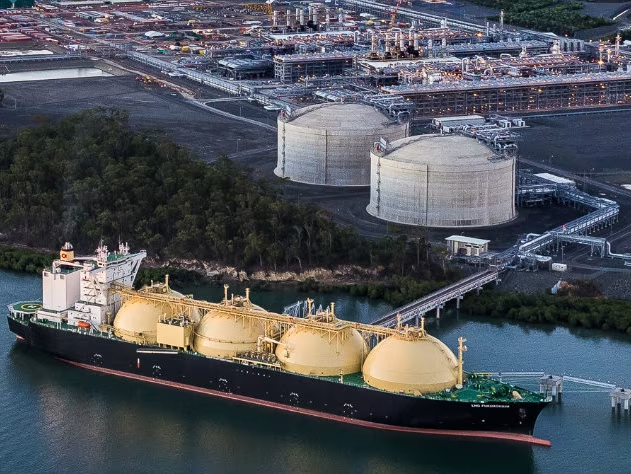In a high-stakes announcement amid the federal election campaign, Opposition Leader Peter Dutton has vowed to impose a gas reservation policy on the east coast if his party wins office. The measure is designed to force more gas into the domestic market and drive down prices—from over $14 per gigajoule to under $10 per gigajoule—by compelling exporters to divert an extra 50 to 100 petajoules annually for local use. Dutton outlined the plan during his budget reply speech, declaring it “just the start” of a broader intervention aimed at curbing rising energy costs.
Expert Criticism: Too Little, Too Late
However, industry veterans and energy experts are quick to dismiss the proposal as flawed and unlikely to yield immediate benefits. Mark Hanna, a veteran from Western Australia’s LNG industry, stated, “The horse has bolted,” arguing that the time to impose such measures was before major projects were set in motion. He recalled how earlier initiatives in Western Australia forced firms into domestic supply agreements, noting that the eastern gas export market has been operating for over a decade, leaving little room for dramatic shifts now. Similarly, energy research head Tony Buckley warned that while the idea of reducing prices is laudable in theory, the practicalities of ramping up domestic supply are “years away.” Buckley emphasized that even with streamlined approvals, bringing additional gas online would take five years or more, rendering any short-term price relief a distant promise.
Economic Impact and Industry Concerns
Critics argue that the policy could inadvertently undermine future gas projects by capping domestic prices too low. Under current market conditions, eastern Australia consumes around 500 petajoules of gas annually, yet approximately 1,300 petajoules are exported—most under long-term contracts with Asian customers. Energy expert Saul Kavonic cautioned that capping prices at $10 per gigajoule could render new projects unviable, as companies might be forced to invest at a loss. “Once you say we’re effectively going to cap the price at $10, there’s a lot of supply projects that were going to come online that simply won’t work at that price,” Kavonic said, labeling the proposal as “weak, populist hypocrite” politics that are bound to backfire.
READ MORE: Myth Busting: Separating Fact from Fiction in Sake Culture
Political and Policy Implications
The proposal comes as the election heats up, with the Coalition positioning itself against Labor’s current energy policies. While Labor’s government recently implemented measures intended to stimulate the domestic market, the Coalition’s plan represents a radical departure from previous policy. Critics from both sides of politics are divided: some see it as an essential move to protect Australian households from soaring energy costs, while others warn it risks destabilizing the industry and jeopardizing long-term investment. With additional claims that the policy could trigger legal challenges from multinational gas suppliers, the debate over Australia’s energy future is far from settled.
The Road Ahead for Gas Supply
Industry sources suggest that even if the Coalition’s reservation policy were implemented, its benefits would be long-term rather than immediate. The domestic gas market’s reliance on stable, long-term contracts means that any substantial increase in supply will not materialize overnight. Analysts point to the need for robust regulatory frameworks that balance domestic consumer protection with the realities of global gas markets. As Dutton’s proposal is scrutinized by economists and industry insiders alike, the consensus remains that meaningful change in gas prices will require comprehensive reforms—spanning streamlined project approvals, increased domestic investment, and clear regulatory guidance to ensure that the policy does not merely become another political stunt.
Conclusion
While Peter Dutton’s gas reservation policy has captured headlines and stirred debate during a critical election period, experts caution that its promise of lower prices and increased domestic supply is, at best, a long-term vision. With entrenched international contracts and the inherent delays in new gas production, the prospect of rapidly lowering domestic gas prices appears unlikely. Instead, stakeholders urge a measured approach that addresses both immediate consumer needs and the broader challenges facing Australia’s gas industry, ensuring that any intervention supports sustainable growth without inadvertently stifling future supply
